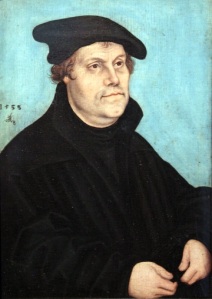 Many Christians, especially conservatives in the US, will tell you that Christianity is compatible with liberty. Some will even say that it’s the foundation of liberty. After all, isn’t one of the Biblical Commandments, “Thou shalt not steal”? So the people in government have no business stealing through coercive taxation. And didn’t Jesus practice non-violence and admonish followers to give to the poor themselves, rather than forcibly taking money from others to donate? What business do the people in government have doing this, if they’re going by Christian morality?
Many Christians, especially conservatives in the US, will tell you that Christianity is compatible with liberty. Some will even say that it’s the foundation of liberty. After all, isn’t one of the Biblical Commandments, “Thou shalt not steal”? So the people in government have no business stealing through coercive taxation. And didn’t Jesus practice non-violence and admonish followers to give to the poor themselves, rather than forcibly taking money from others to donate? What business do the people in government have doing this, if they’re going by Christian morality?
Yet the countries of Europe have a long history of dictatorial rulers, while seeming to be very heavily Christian. In the Middle Ages, feudal lords ruled over their subjects–especially serfs–with near-absolute power. Kings and popes strove to maximize their authority over their subjects, to rule as Christian monarchs. In the 17th Century, the Christian king of France, Louis XIV, was especially successful at becoming an absolute monarch. The pope was extremely powerful, often like a monarch in his own right. This continued, even as priests and noblemen knew about the Roman Republic of antiquity.

Burning at the stake was one of the punishments for heresy or witchcraft. It was used as punishment for these “crimes” up to 1,300 years after Christianity first dominated Europe.
During the Middle Ages, and even into the Renaissance, the Roman Catholic Church put people on trial for “heresies,” (differences of religious belief) and if they were convicted, they were handed over to civil authorities to be imprisoned, hanged, or burned at the stake.
Persecution for heresy was not even limited to official acts carried out by the civil/religious authorities. Ordinary people–commoners and peasants–sometimes formed mobs and burned alleged heretics themselves, without trial.
Popes sanctioned wars of conquest, like Charlemagne’s wars to conquer Saxony and Lombardy, the Norman invasion of England in 1066, and multiple crusades to conquer the Holy Land.
Even after the Protestant Reformation, there were Protestant despots like King Henry VIII and Oliver Cromwell of Britain, and Charles IX of Sweden who were cruel and tyrannical, and who violated the religious freedoms of their subjects. Religious wars continued to rage across Europe, such as the Thirty Years’ War.

Martin Luther supported the death penalty for anyone guilty of blasphemy.
All of this occurred during a deeply religious and almost universally Christian era in Europe’s history. By virtually every measure, people during the 1,300 years between the fall of the Roman Empire and the Enlightenment, were far more religious than in the past 300 years. They went to church more often, prayed more often, relied on the Bible more, were less concerned about earthly life and more concerned about whether they were headed for heaven or hell. They became passionate and even violent over religious disputes, and most of them had no tolerance for heresies, paganism, or atheism. (Atheism was basically unheard-of.)
Was all of the oppression and war some bizarre, inexplicable, 1,300-year fluke of history? Did a crazy corruption of Christianity somehow reign for 1,300 years, amid widespread and profound religiosity?
In the rest of this essay, I will argue that these 1,300 years were no fluke and no corruption of the fundamental ideas of Christianity. What may seem like a corruption to some superficial, modern interpretations of Christian ideas, is in fact a logical consequence of the deeper ideas of Christian morality. Christian morality ultimately supports statism and oppression of the individual, not liberty and individual rights.
The two major moral tenets that support statism are: self-sacrifice for others, and faith.
